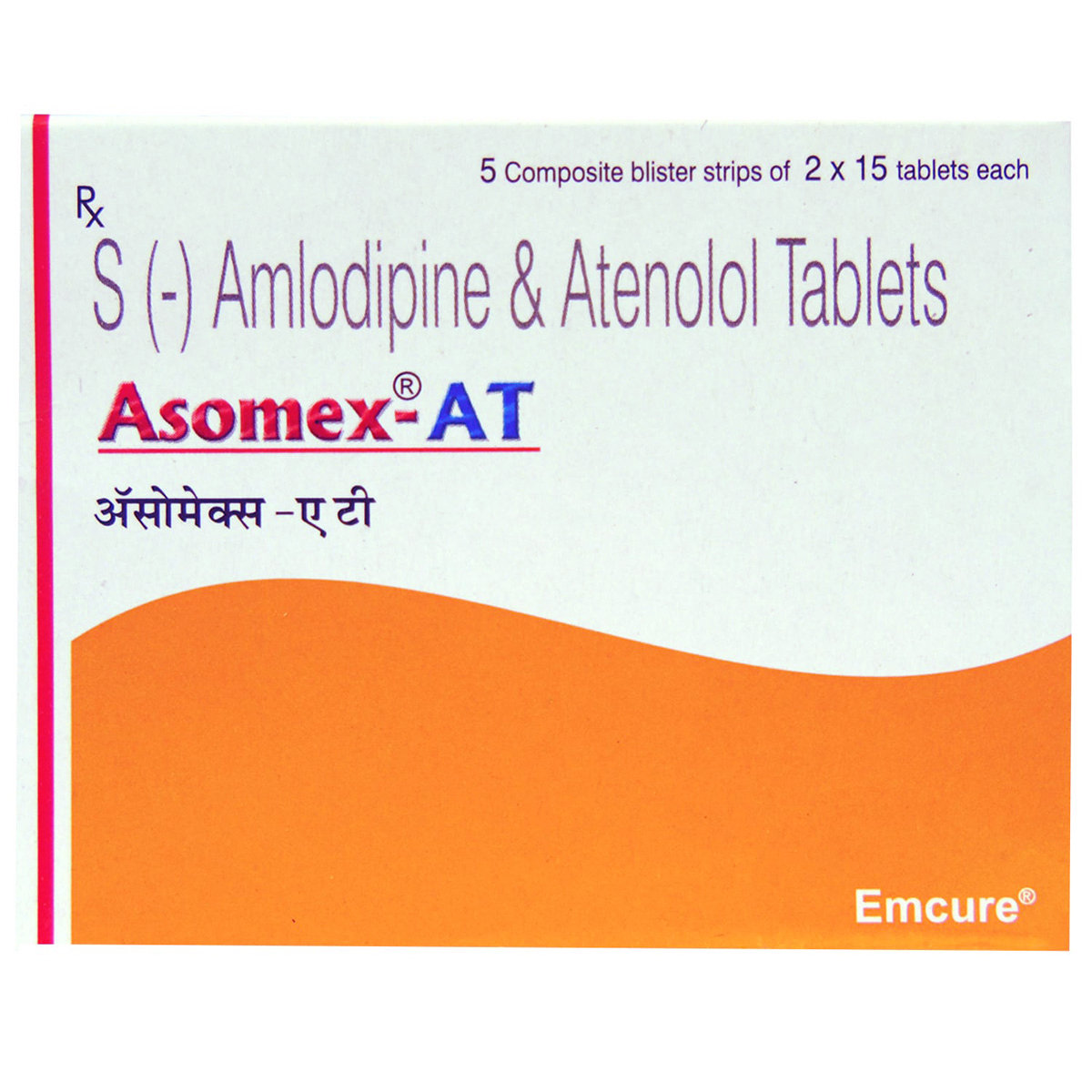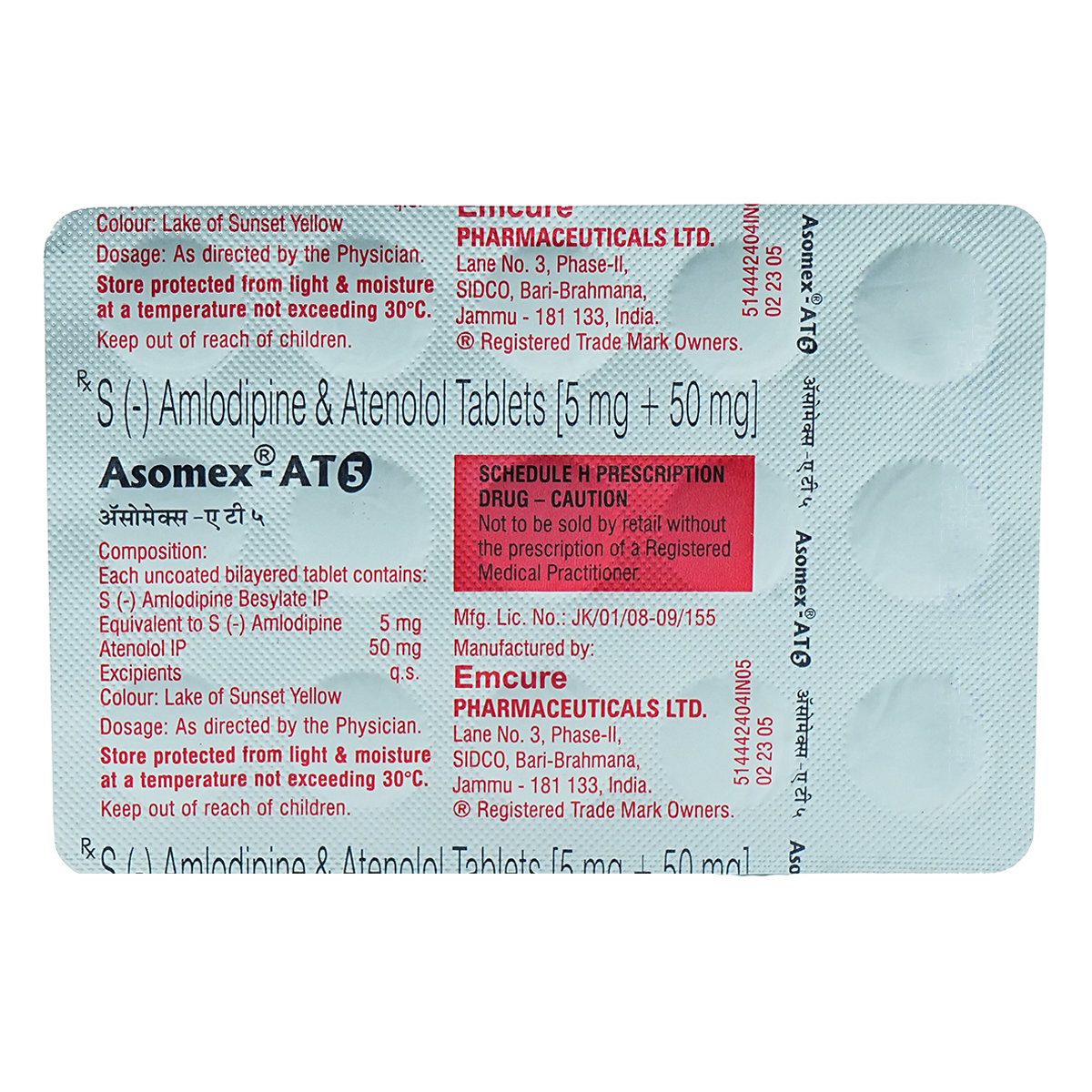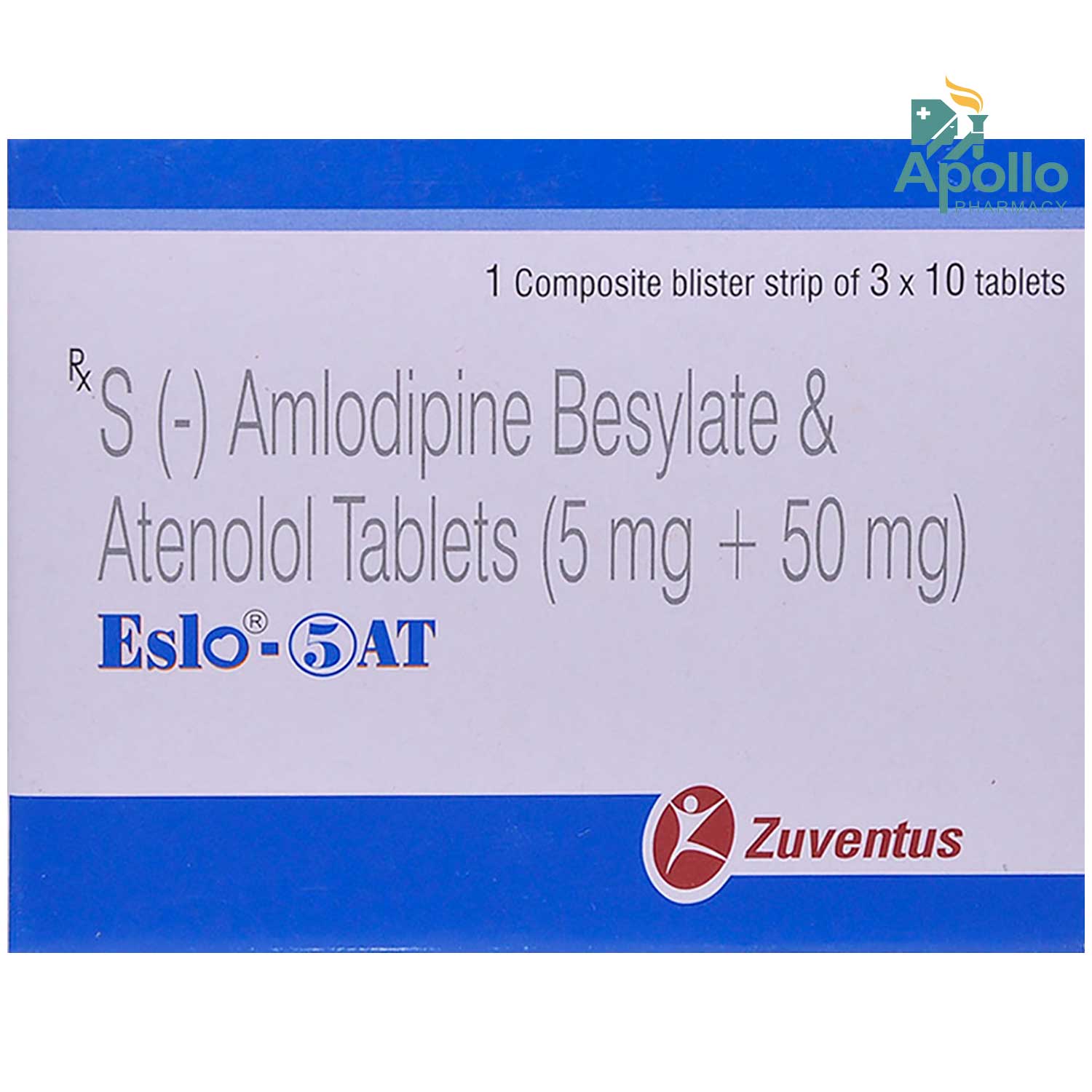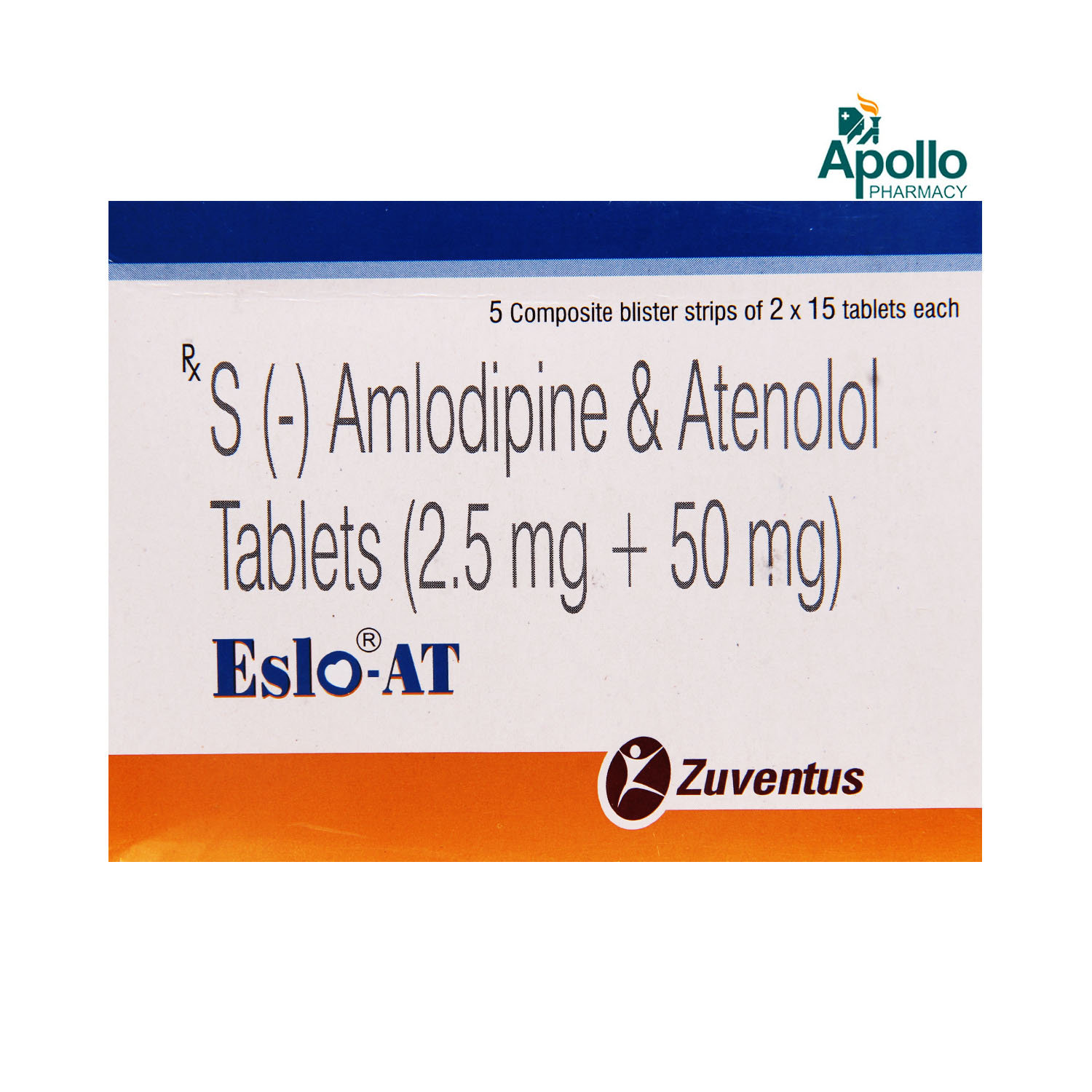S-atenolol
About S-atenolol
S-atenolol is a heart medicine used in the treatment of hypertension. It is used to treat hypertension (increased blood pressure). Hypertension is a serious condition in which the force exerted by the blood against the artery walls becomes high. This hardens the heart to pump blood. S-atenolol is also used to treat arrhythmia (irregular heartbeat) or any other heart conditions like angina (chest pain). Arrhythmia is a problem associated with the rate of rhythm at which the heart beats. S-atenolol helps relax the blood vessels and prevent further heart attack and stroke risk.
S-atenolol contains S-Atenolol, which belongs to the class of beta-blocker drugs. It works by blocking the action of certain chemicals like adrenaline. This results in the reduction of heart rate and thus decreases the blood pressure. In general, S-atenolol helps relax the blood vessels, decrease blood pressure, and prevent further risk of heart attack and stroke.
S-atenolol may cause certain side effects such as headache, diarrhoea, feeling sick, tiredness, aching muscles, depressed mood, dizziness, fatigue, slow heart rate, and weakness. Most of these side effects do not require medical attention and subside over time. However, if the side effects persist longer, reach out to your doctor. Take S-atenolol as prescribed by your doctor.
S-atenolol should be avoided if you are allergic to it. Inform your doctor if you have/had conditions like a very slow heart rate, asthma, diabetes, thyrotoxicosis (thyroid gland disorders), serious heart condition (sick sinus syndrome) or any heart blockage, or severe kidney/liver disease. It is not known whether S-atenolol is given to pregnant and breastfeeding mothers. Hence, inform your doctor if you are pregnant or breastfeeding before taking this medicine. Blood pressure and heart rate monitoring is needed while taking S-atenolol. It is advised not to stop taking S-atenolol abruptly, as it may lead to withdrawal symptoms like an irregular heartbeat, which can be really fatal. S-atenolol is not recommended for use in children below 12 years of age as the safety and efficacy are not established.
Uses of S-atenolol
Medicinal Benefits
S-atenolol contains S-Atenolol, which belongs to the class of beta-blocker drugs. It works by blocking the action of certain chemicals like adrenaline. This results in the reduction of heart rate and thus decreases the blood pressure. In general, S-atenolol helps relax the blood vessels, decrease blood pressure, and prevent further risk of heart attack and stroke. It effectively helps to treat problems associated with an irregular heartbeat.
Directions for Use
Storage
Side Effects of S-atenolol
- Fatigue
- Slow heart rate
- Dizziness
- Weakness
- Headache
- Nausea
- Depressed mood
- Tiredness
Drug Warnings
S-atenolol should be avoided if you are allergic to it. Inform your doctor if you have/had conditions like a very slow heartbeat, asthma, diabetes, thyrotoxicosis (thyroid gland disorders), serious heart condition (sick sinus syndrome) or any heart blockage, or severe kidney/liver disease. It is not known whether S-atenolol is given to pregnant and breastfeeding mothers. Hence, inform your doctor if you are pregnant or breastfeeding before taking this medicine. Blood pressure and heart rate monitoring are needed while taking S-atenolol. Do not stop taking S-atenolol abruptly, as it may lead to withdrawal symptoms like an irregular heartbeat, which can be fatal. S-atenolol is not recommended for use in children below 12 years of age as the safety and efficacy are not established. Lifestyle changes are beneficial in achieving optimum outcomes with S-atenolol and keeping blood pressure under check.
Drug Interactions
Drug-Drug Interactions: S-atenolol is known to interact with drugs used for the treatment of high blood pressure (digoxin, amiodarone), heart failure (verapamil, diltiazem), depression (lithium), epilepsy (phenytoin, phenobarbital), allergy (astemizole, terfenadine), antibiotics (erythromycin), malaria (halofantrine), diabetes (insulin), asthma (salbutamol), anxiety (methyldopa).
Drug-Food Interactions: Alcohol should be avoided while taking S-atenolol as it can cause serious side effects.
Drug-Disease Interactions: S-atenolol is known to interact in patients with hypotension (low blood pressure), heart disease, severe kidney/liver disease, sick sinus syndrome, thyrotoxicosis, and asthma.
Drug-Drug Interactions Checker List:
Safety Advice

Alcohol
unsafeAlcohol consumption can increase the blood pressure-lowering effect of S-atenolol, making you feel dizzy or light-headed. Therefore avoid alcohol while on treatment with S-atenolol.

Pregnancy
cautionLimited data is available on the effect of S-atenolol in pregnancy. Hence, if you are pregnant or planning pregnancy, inform your doctor before taking S-atenolol. Your doctor may prescribe this medicine if the benefits outweigh the risks.

Breast Feeding
cautionLimited data is available on the effect of S-atenolol in breastfeeding. Hence, if you are a nursing mother, inform your doctor before taking S-atenolol. Your doctor may prescribe this medicine if the benefits outweigh the risks.

Driving
cautionS-atenolol may sometimes cause dizziness or fatigue. Hence it is advise to drive or operate any machines when you are alert.

Liver
cautionS-atenolol should be used with caution if you have a history of liver disease. Your doctor may adjust the dose based on your condition.

Kidney
cautionS-atenolol should be used with caution if you have a history of kidney disease. Your doctor may adjust the dose based on your condition.

Children
unsafeS-atenolol is not recommended for children below 12 years of age as safety and efficacy are not established.
Habit Forming
Diet & Lifestyle Advise
- Keep your weight under control with a BMI of 19.5-24.9.
- Opt for a diet rich in whole grains, fruits, veggies, and low-fat dairy products.
- Limit sodium chloride (table salt) intake in your daily diet to 2300 mg per day or less than 1500 mg is ideal for most adults.
- Avoid consuming alcohol while receiving S-atenolol as it can cause serious adverse effects.
- Quitting smoking is the best strategy to lower the risk of heart disease.
- Avoid chronic stress, as it can raise your blood pressure. Try to enjoy and spend time with your loved ones to cope with stress and practice mindfulness techniques.
- Monitor your blood pressure daily, and if there is too much fluctuation, then immediately contact your doctor.
Special Advise
- S-atenolol when taken with anti-coagulants like warfarin, regular monitoring of prothrombin time is recommended.
- Regular blood tests should be done to monitor your sodium and potassium levels, blood sugar levels, kidney function, and lung function.
Patients Concern
Disease/Condition Glossary
Hypertension: Also called high blood pressure, is a serious condition in which the force exerted by the blood against the artery walls becomes high. This hardens the heart to pump blood. Raised blood pressure can cause chest pain (angina), heart attack (when the blood supply to the heart is blocked), stroke (brain damage) and kidney failure. S-atenolol is used in treating hypertension and thus helps reduce further risk. The blood pressure can be diagnosed with the help of a blood pressure monitor called a sphygmomanometer.
Arrhythmia: Arrhythmia is a condition associated with the rate of rhythm at which the heart beats. Generally, in this condition, the heart beats either too fast, too slow, or irregularly, which can lead to severe heart damage. A cardiac arrhythmia occurs when there are abnormal electrical signals in the heart. When the heart beats too fast, it is known as tachycardia; if it is too slow, it is called bradycardia. Treatment of arrhythmia includes drugs, medical procedures, implantable devices and sometimes surgery.
FAQs
S-atenolol contains S-Atenolol, which belongs to the class of beta-blocker drugs. It works by blocking the action of certain chemicals like adrenaline. This results in the reduction of heart rate and thus decreases the blood pressure.
S-atenolol should not be used if you are allergic to it if you have cardiogenic shock (heart unable to pump sufficient blood), uncontrolled heart failure, sick sinus syndrome ( heart rhythm disorder), heart block, hypotension (low blood pressure), and severe peripheral arterial circulatory disturbances.
An electrocardiogram (ECG) is the most effective approach to diagnosing an arrhythmia.







